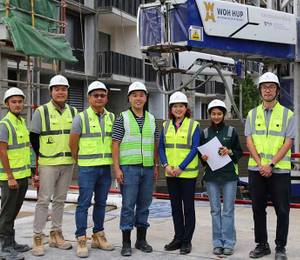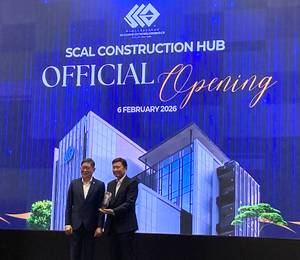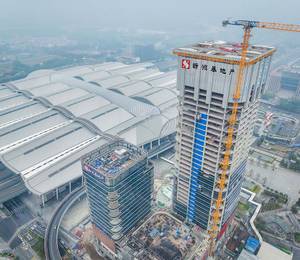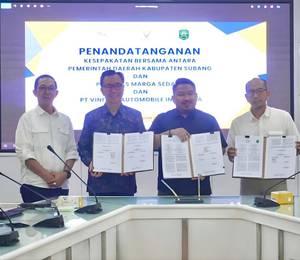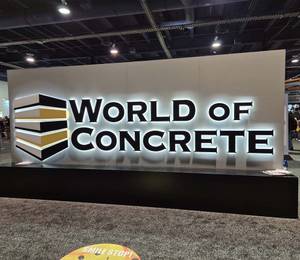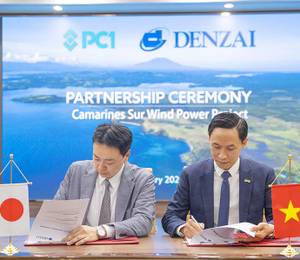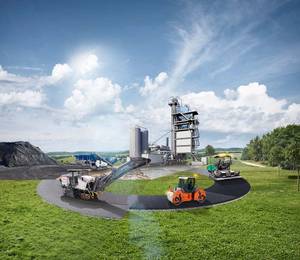Shimizu Corporation has shared the progress made on the contract package I-1 of the Davao City Bypass project in Mindanao, the Philippines. “At more than 40% complete, the work is in its peak phase,” said the Japanese contractor.
This section, which includes the country’s first full-scale mountain tunnel, is being carried out in a joint venture (JV) with Takenaka Civil Engineering & Construction and local construction company Ulticon Builders.
When fully completed, the entire 45-km-long bypass connecting Sirawan in southern Davao City to Panabo City in the north will cut the travel time between the two regions in half, reducing it by around 50 minutes to less than an hour.
The contract package I-1 was formally signed between the JV and the Department of Public Works and Highways of the Philippines (DPWH) in October 2020. Work commenced in December 2020.
The JV constructs the central part of the bypass, measuring a total of 10.7 km. It features 2.3-km twin tunnels of 8 m high and 10 m wide (one inbound and one outbound), an 8.4-km main road, and three bridges totalling 540 m, with Shimizu and Takenaka responsible for the tunnels.
Work on the main road started in April 2021, and after cutting an access road to the tunnel entrance, tunnel excavation began at the north tunnel entrance in November 2021 and the south entrance in April 2022. Tunnel excavation is currently underway for the two tunnels, one each for northbound and southbound lanes, from the northern and southern tunnel entrances.
Concrete lining is simultaneously progressing at four different work zones, added Shimizu. As of 30 November 2023, the progress stands at 70.3% (1,580 m / 2,249 m) for the southbound tunnel and 76.4% (1,711.6 m / 2,240 m) for the northbound tunnel.
The contractor further highlighted that the ground in the tunnel construction area, which is predominantly composed of relatively soft strata called mudstone, required support (auxiliary construction method) to prevent deformation and collapse of the tunnel walls (ground). However, three conditions made the shoring plan more challenging.
The first condition was that a stream crossed over about 200 m from the northern tunnel entrance with only around 11 m of earth covering. In this section, the ground was reinforced in advance in the direction of excavation, and a special ground improvement agent was imported from Japan to prevent earth collapses caused by water ingress.
The second and third conditions were that the earth covering exceeded 100 m, resulting in high earth pressure in the central part of the tunnel, and with only a 20-m separation between the walls of the two tunnels, they were each impacted by the other’s excavation work.
“In Japan, shoring plans can be changed quickly according to ground deformation, but in the Philippines, it takes a long time to procure materials when plans are changed,” explained Shimizu. “As such, we made an effort to enhance the originally planned shoring to ensure ground stability.”
The Philippines’ Marcos administration is focused on infrastructure development across the country, in line with its slogan ‘Build Better More’. With that in mind, Shimizu stressed that “our joint venture is committed to meeting government expectations through the timely completion and opening of the Davao City Bypass, coupled with technology transfer.”
Image: Shimizu

